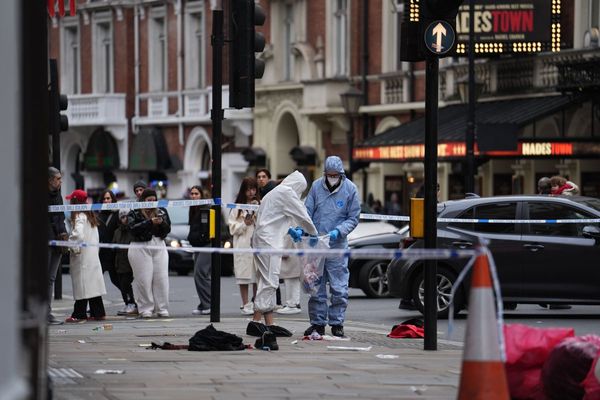
Athens (AFP) - Conservative Prime Minister Kyriakos Mitsotakis urged voters to return him to power to build a "new Greece", while his rival called for an end to the "nightmare" of his term, in closing rallies Friday ahead of the most uncertain general election in a decade.
Speaking under the imposing Acropolis in Athens, Harvard graduate Mitsotakis said he delivered on his previous promises to bring steady growth, tax cuts and tougher immigration rules.
Over the last four years, "we laid the foundation and on the day after tomorrow...we will continue with building a new Greece," pledged Mitsotakis.
But in Greece's third largest city Patras, his leftist rival Alexis Tsipras argued that vast swathes of the population had been left struggling by the incumbent government.
The former prime minister accused Mitsotakis of promising "better jobs and wages, only to have the middle class live on coupons", as he urged voters to "open the door to change" and "end the nightmare on Sunday".
Almost 10 million Greeks are eligible to vote on Sunday.Although the EU country is currently enjoying a rare respite of economic stability after over a decade of debt woes, coping with rising costs of living remains a key concern.
Political dynasty scion Mitsotakis and atheist leftist Tsipras have travelled from island to border in recent weeks, canvassing for votes in an election that, because of a change in the electoral system, may require a second round of voting -- likely on July 2.
Current polls give the outgoing prime minister a clear lead of between five and seven percentage points, but the rules for Sunday's ballot set a high bar for an absolute majority that no party is likely to clear.
Mitsotakis has repeatedly urged voters not to squander Greece's economic gains.He has warned that failure to return his New Democracy party to power would lead to "paralysis" and "chaos" given global challenges such as the Ukraine war and inflation.
Stability
While Greece posted growth of 5.9 percent in 2022, Tsipras -- a 48-year-old engineer who was prime minister from 2015 to 2019 -- has argued that the benefits have not trickled down to the population, with many workers on wages that have not kept pace with sharply rising costs.
The leftist, who led a rocky bailout negotiation in 2015 that nearly crashed Greece out of the euro, says the government's allies have gained most from Mitsotakis's term.
He has also highlighted a wiretap scandal that forced the resignations of the head of the intelligence service and a nephew of Mitsotakis, who was a top aide in his office.
He is pushing for salary hikes that Mitsotakis says will cost over 80 billion euros.Tsipras's estimate is four times less -- and he argues that Greece could get more EU financial aid.
Rejecting accusations of fiscal irresponsibility, Tsipras said that on his watch, Greece "exited the bailout safely, we renegotiated the public debt and left 37 billion euros in state coffers".
But Mitsotakis, who has never lost an election against Tsipras, wields stability as his trump card.
"Are we going to continue building a strong Greece or return to a time when Greece was the pariah of Europe?" he asked.
Rage and justice
At Mitsotakis' rally in Athens, 47-year-old civil servant Nadia Aggelopoulou said the conservative leader's mandate had been "excellent at all levels".
"We don't hear any lies," she said, convinced that salary rises will come if he is reelected.
But in Patras, Kyriakos Bazaroglou, 50, said he will give Tsipras another chance.
"Since the crisis, we haven't been able to hold up our heads.We have Balkan salaries and European prices," he said.
With nearly 440,000 Greeks as young as 16 voting for the first time, both leaders are aggressively courting the youth vote, which is heavily influenced by high unemployment.
It may also be impacted by February's train crash that killed 57 and which sparked days of angry protests.
The government drew fire after initially trying to blame the accident exclusively on human error, when Greece's notoriously poor rail network has suffered from years of under-investment.







